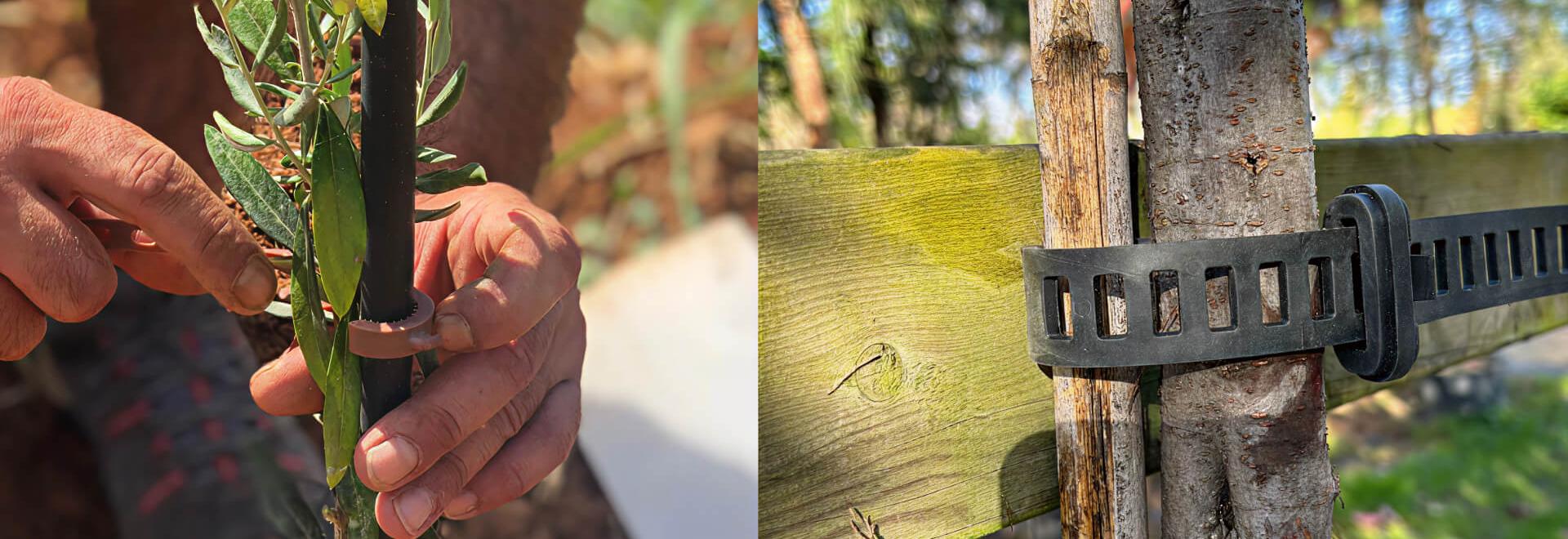Agriculture is undergoing a profound transformation. Across the globe, growers are increasingly turning to ecological practices, driven by the urgent need to protect natural resources and respond to growing market demand for sustainable solutions. This shift is not a passing trend, it is reshaping the way crops are cultivated and supported.
At ARaymond Agriculture, we understand this change because we have been walking alongside growers for many years. Our long-standing expertise in fastening and crop-support solutions gives us a solid foundation to innovate with responsibility. Today, that innovation takes the form of eco-design, a design philosophy that reduces environmental impact while ensuring the same reliability and performance growers expect from us.
Through this article, we want to share how eco-design guides our mission and how, together with growers, we can build a more sustainable future for agriculture.
Why eco-design matters in agriculture?
For growers, sustainability is about finding the right balance: producing efficiently while protecting the environment for the next generation. Eco-design offers a clear pathway to achieve this.
By rethinking how products are conceived, manufactured, and used, eco-design ensures that every stage of a solution’s life cycle contributes to sustainability without compromising performance. For agriculture, this means:
- Preserving natural resources: By choosing materials and processes that reduce waste and protect soil and water.
- Durability in the field: Products are designed to last longer, even in challenging conditions, reducing replacements and costs.
- Practical innovation: Through fastening and crop-support solutions that are easy to use, reliable, and environmentally responsible.
- Meeting market expectations: Growers can demonstrate their commitment to sustainability, strengthening trust with consumers and stakeholders.
What eco-design means at ARaymond?
Eco-design is not an abstract concept, it is a concrete method we apply every day at ARaymond Agriculture. When developing a new solution, we look at its entire life cycle: from the choice of raw materials to manufacturing, usage in the field, and end-of-life.
Our approach is built on four pillars:
- Lifecycle thinking: Assessing environmental impact from start to finish, avoiding pollution transfer from one stage to another.
- Collaboration: Involving R&D, supply chain, manufacturing, marketing, and, most importantly, growers in the process.
- System efficiency: Designing solutions that optimize time, effort, and resources in agricultural practices.
- Continuous improvement: Setting clear progress goals to make our solutions more sustainable year after year.
This way, we ensure that our fastening and crop-support systems are not only functional but also aligned with the values of modern, sustainable agriculture.
Orbit & Agilo: sustainable fastening solutions for nurseries
A powerful example of eco-design is found in our Orbit and Agilo fastening systems, created for nursery tree production. Both solutions reflect ARaymond’s eco-design principles and deliver tangible value for growers:
- Reusable over multiple seasons: Orbit can be used for up to five production cycles, saving costs and resources.
- Protecting the soil: The system eliminates plastic waste left in the ground, a key environmental concern.
- One solution, many stages: Orbit adapts to different growth phases, reducing the need for multiple products and simplifying growers work.
Together, Orbit and Agilo show how eco-design creates reliable fastening, minimizes environmental impact, and increases efficiency for nursery growers.
Learn more about Orbit in this interview with Oriol Sullà.
The transition towards ecological agriculture is accelerating, and growers need partners they can trust on this journey. With decades of experience and a strong focus on innovation, ARaymond Agriculture is committed to supporting them with solutions that combine practicality, reliability, and eco-design.
Our mission is clear: to contribute to a more sustainable agriculture where productivity and responsibility grow hand in hand.
